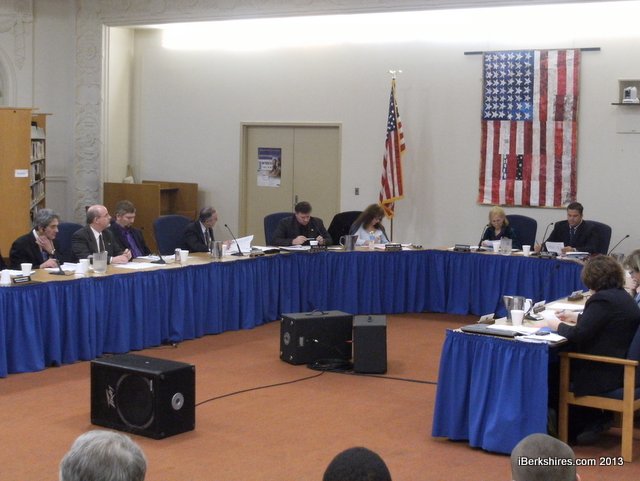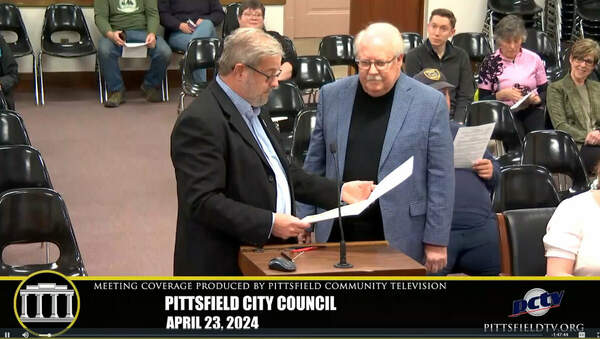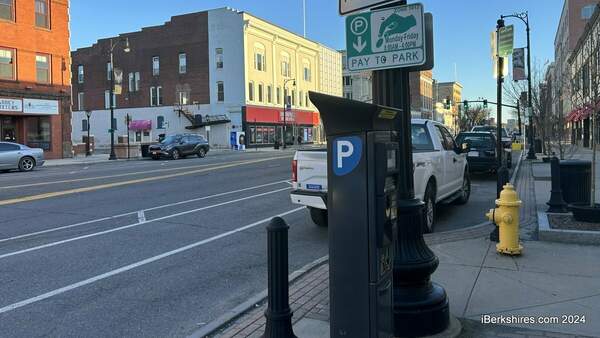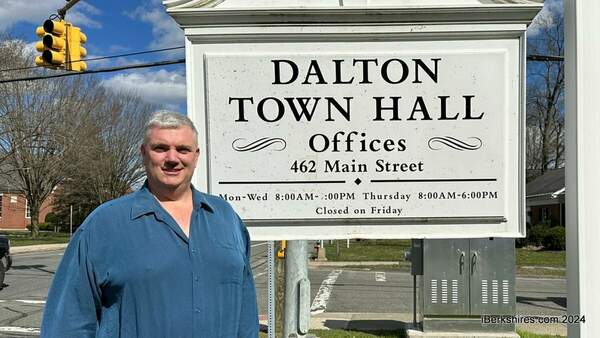Pittsfield Councilors, School Committee Reconcile Budget Numbers
|
Members of the City Council finance subcommittee joined the School Committee on Wednesday to review expenditures. |
PITTSFIELD, Mass. — The School Committee and the City Council's finance subcommittee reviewed the school department's fiscal 2013 expenditures in a joint meeting they hope will be the beginning of a more extended budget review process in the future.
The conjoined session, held as part of the School Committee's regular meeting Wednesday, came in response to questions from Councilor Barry Clairmont about apparent school budget surpluses for the current fiscal year.
Clairmont initially put forth a petition inviting the school department to present an update on its second quarter expenses to the Committee on Finance at the beginning of January, but the School Committee voted to decline this, offering the alternative of attending a regular meeting instead.
"This was not about some sort of power struggle," Clairmont said of the disputed invitation. "It was really about providing information to the citizens of Pittsfield in a one-stop-shop."
The councilor, who serves on the finance subcommittee and is a professional CPA, had outlined in advance a number of budget lines he wished more clarification on, including surpluses that he indicated at a previous finance subcommittee meeting could amount to as much as a million dollars he'd hoped to see return to the city's free cash fund at the end of the fiscal year.
Assistant Superintendent for Business and Finance Kristen Behnke reviewed projected year-end surpluses and deficits in more than a dozen line items of the department's budget, which in several places amounted to differences of a $100,000 or more from the budget approved by the council last summer. Deviations ranged from a $107,502 surplus in the line item for severance pay to a projected deficit of $127,000 in special education funds, because of mid-year budget cuts at the state level.
Clairmont agreed that most of the explanations given for the differences made sense, given the additional information about each presented by Behnke. He noted that the school department accounting software differed from that used in the rest of the city budget, which had made the nature of some of the deviations unclear.
He took issue, however, with certain line item transfers amounting to a majority of the sum appropriated by the council in November to fund pay increases for teachers resulting from the negotiation of a recent agreement reached with United Educators of Pittsfield, the city's largest teachers union. Clairmont voted to oppose the $256,389 appropriation at the time, saying he would prefer to see first if the school department could manage to shift funds from other line items within the already approved budget to cover the cost of the raises.
"Out of the $574,000 of transfers, $211,000 went to non-salary line items, and that says to me that you didn't need the $256,000," said Clairmont, "Because 74 days after the request, you've already moved 83 percent of that funding that we were told you could not live without for salaries, into non-salary line items."
Behnke was not able to fully address the numbers cited by Clairmont, as this had not been among the set of questions provided by the council subcommittee for her to research in advance of Wednesday's meeting, but assured the councilor that the November request had been necessary.
"I did not come in to you with a request that was frivolous," said Behnke. "We calculated exactly how much it was going to cost us to do the increases."
Mayor Daniel Bianchi, who sits on the School Committee by virtue of his office, echoed the necessity of the November request.
"It was to cover what we thought would be the shortfall," said the mayor, who added the department might still end the year in deficit. "That $256,000 was definitely required for us to be able to fund the school department budget of $55 million, and hopefully so that we did not end up in a deficit situation."
"Certainly I can understand your concerns from a fiscal standpoint of not wanting to appropriate free cash where it might not be needed," said Behnke. "But I certainly don't feel comfortable — and I don't know how the School Committee would feel — about ending the year in deficit."
Despite a continued difference of opinion on the necessity of the November appropriation, members of both elected bodies concurred on the desirability of additional meetings of the two prior to final budget review at the end of the fiscal year. While Clairmont proposed this be done quarterly, School Committee Chairman Alfred E. Barbalunga suggested twice a year, with Councilor Jonathan Lothrop echoing agreement.
Council President Kevin Sherman emphasized that the purpose of such meetings was "not to micro-manage" the school side, but to gain a better understanding of the appropriations the council must approve each year.
"We are colleagues," said Sherman. "No one's above the other."
Tags: Pittsfield School Committee, school budget,
















